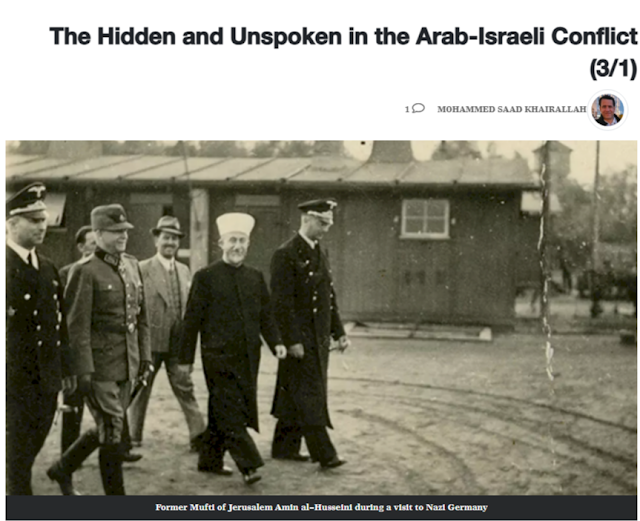Where have all the Jews gone?
Just as in the past, American Jews are moving away from urban cores – where violence and now anti-Semitism are more obvious. Historian Arthur Hertzberg estimated that between the end of the Second World War and 1956, one-third of all Jews left the urban centers for the suburbs. When you think of Jewish communities, particularly outside orthodoxy, you think not of the Lower East Side but Long Island and Westchester. In LA, Boyle Heights has been supplanted first by the San Fernando Valley and increasingly the Conejo Valley even further from Downtown. In Greater Baltimore today, three-fourths of all Jews live in the suburbs.NYPost Editorial: Hamas’ cease-fire ‘counteroffer’ is just a demand for Israel to give up the war
The same forces – crime and rising anti-Semitism – have also prompted many Jews to move to the South. Long seen as too conservative and Christian fundamentalist, the South is now the ‘it’ place for Jews, both in terms of basic safety and economic opportunity. Demographer Ira Sheskin notes that while the north-east’s share of US Jews has dropped from 68 per cent in 1955 to 41 per cent today, the South’s share of the US Jewish population has soared from a mere eight per cent in 1955 to 24 per cent. The ‘hot’ cities for Jewish growth include Dallas, Houston and Atlanta, as well as Miami.
More and more Jewish young people are choosing colleges on similar grounds. For generations, the dream of Jewish parents was to send their offspring to the Ivy League, or the great public universities like Berkeley or UCLA. But today, the leading destination for Jewish students is the University of Florida, with the University of Central Florida ranking third.
The reason for this shift is simple. Jewish young people are safer in the South. According to one study ranking universities’ level of hostility toward Jewish students, Columbia, the University of Pennsylvania and three University of California campuses were among the most hostile. The least hostile environments included Tulane in New Orleans, Washington University in St Louis and five colleges in Florida.
Jews may be in the depths of despair, as their havens throughout the West sometimes seem to be turning into an anti-Zionist, Jew-hating hellscape. But they have hope, too. After all, Jews have survived outside Israel for two millennia by adapting, shifting their locales and their political loyalties to fit changing realities. We may be horrified by recent events. But in the face of those who yearn for our destruction, we will persevere.
Witkoff’s latest offer would have Hamas turn over 10 living hostages and a dozen or two bodies, in exchange for 125 terrorists serving life sentences plus another 1,000-plus jailbirds and a 60-day ceasefire and ongoing talks toward a full peace settlement.Iran secretly enriching enough uranium for nine nuclear weapons, IAEA report says
But Hamas knows full well that Netanyahu won’t end the war until the terrorists are all dead, surrendered or expelled from Gaza: He refuses to allow for any possibility of another Oct. 7, and Israeli public opinion so far supports him.
So the terror group’s counteroffer is to demand some kind of guarantee that Washington won’t let the IDF resume operations when the 60 days are up, as well as the resumption of aid entering under UN or similar auspices, without Israeli controls.
As things stand, Hamas is toast within months.
To get hostages returned, Israel will allow it a respite — and so risk some development (Netanyahu’s ouster, a drastic shift in the region, Washington concluding it needs the war ended; who knows?) that would let the terror group hang on in Gaza.
Unless Team Trump decides to overrule Israel’s unchanged war goals, Hamas will have to settle for that hope of a lifeline, or no deal is happening.
Iran carried out secret nuclear activities with material not declared to the UN nuclear watchdog at three locations that have long been under investigation, the watchdog said in a wide-ranging, confidential report to member states seen by Reuters.
The findings in the "comprehensive" International Atomic Energy Agency report requested by the agency's 35-nation Board of Governors in November pave the way for a push by the United States, Britain, France, and Germany for the board to declare Iran in violation of its non-proliferation obligations.
A resolution would infuriate Iran and could further complicate nuclear talks between Tehran and Washington.
Using the IAEA report's findings, the four Western powers plan to submit a draft resolution for the board to adopt at its next meeting the week of June 9, diplomats say. It would be the first time in almost 20 years that Iran has formally been found in non-compliance.
Tehran says it wants to master nuclear technology for peaceful purposes and has long denied accusations by Western powers that it is seeking to develop nuclear weapons.
Iran said that a report by the UN nuclear watchdog on Saturday is "politically motivated and repeats baseless accusations", state media reported.
Iran said it will "implement appropriate measures" in response to any effort to take action against Tehran at the IAEA governors' meeting.
While many of the findings relate to activities dating back decades and have been made before, the IAEA report's conclusions were more definitive. It summarized developments in recent years and pointed more clearly towards coordinated, secret activities, some of which were relevant to producing nuclear weapons.
It also spelled out that Iran's cooperation with IAEA continues to be "less than satisfactory" in "a number of respects." The IAEA is still seeking explanations for uranium traces found years ago at two of four sites it has been investigating. Three hosted secret experiments, it found.







 Buy
Buy 





.png)
























